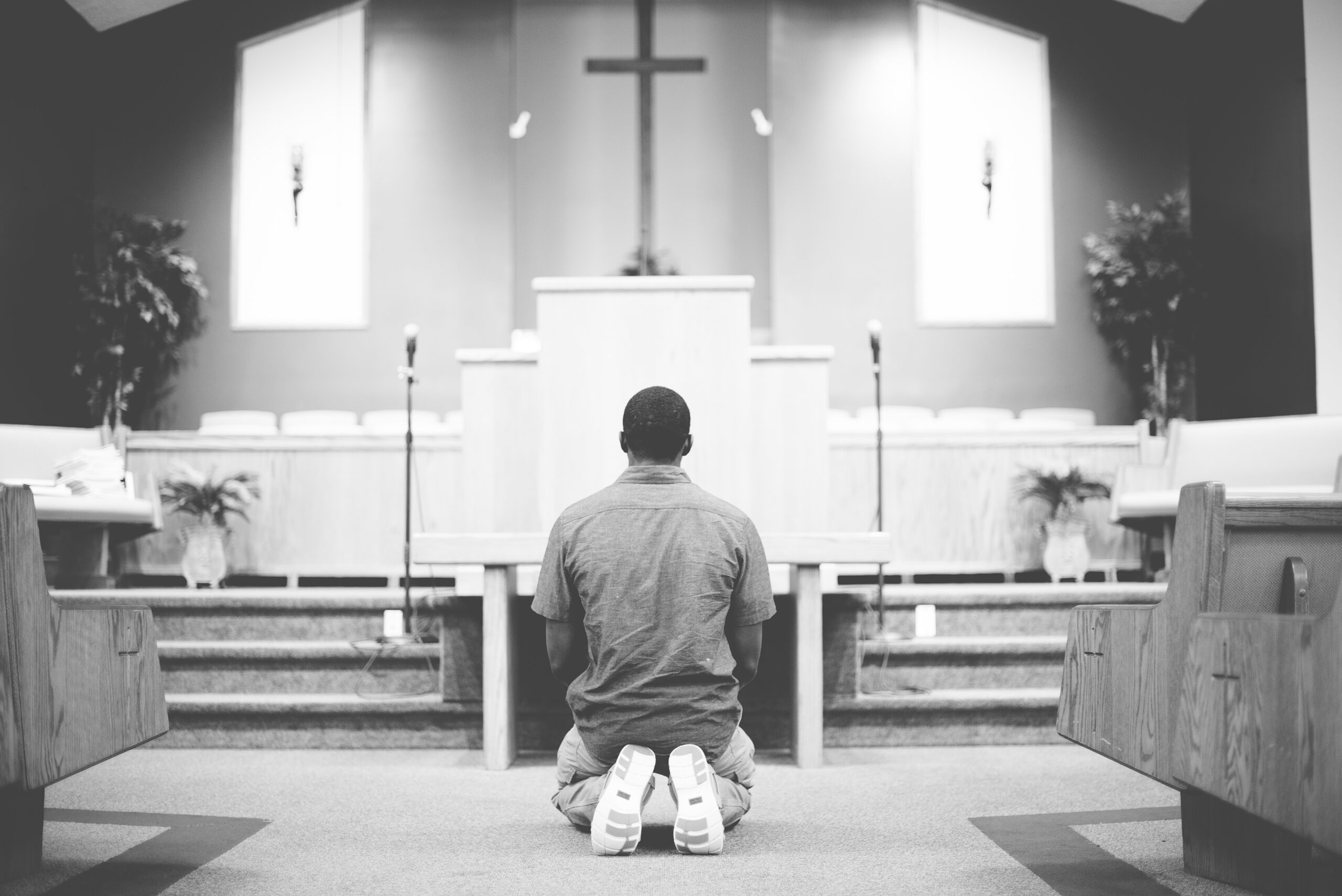Wikipedia defines idolatry as the worship of an idol or cult image, being a visible image, such as a statue, or a person in place of God. In Christianity, idolatry refers to the act of worshipping something or someone as though they were God. God’s assignment and purpose became the place I revered and adored the most. I needed to make things work for myself and for the advancement of God’s Kingdom. My desire was to make a difference in my community so God would be pleased with me.
God spoke through Ezekiel,
For when I had brought them into the land which I swore to give to them,
they saw every high hill and every dark and leafy tree [as a place for idol
worship], and there they offered their sacrifices, and there they presented their offering that provoked My anger; there also they made their sweet-smelling
aroma and there poured out their drink offerings.
Ezekiel 20:28
The Israelites were not doing anything particularly bad; they were making sweet-smelling aromas and pouring out their drink offerings. It must have felt like a form of worship to them. However, God’s wrath was aroused, and He scattered them. Why is God so upset about this? I realized that God wanted them to keep His Sabbath so that they could rest.
By resting, God helps us to break the attachments we form with our places of work as a source of our provision. God can provide for us whether or not we have a job. According to the Bible, man shall not live by bread alone, but by every Word that proceeds from God’s mouth (Matthew 4:4).
All we need to do is listen and hear what God’s Word is, and we will live. So, a friend once asked me, “I get that, but let’s get real now. We cannot literally eat the Word (Scriptures in the Bible) can we? If we don’t eat the food we will soon die, right? And we need the jobs and businesses to put food on the table, right? We have to value the jobs because they are the means of sustenance for us, right?”
Wrong.
This very reason is what got Israel in trouble. God is our sustenance, just as He was for them. His commands and instructions direct us in what we should do. He will provide for us in whatever way He sees fit. For some it’s through wisdom to dig wells during droughts (Isaac), for others it is moving from one country to another during hardships (Joseph and Mary mother of Jesus), for others, it is wise to save in plenty to consume in lean seasons (Joseph), for others He sent ravens with meat every single day (Elijah), for others, it is a gold coin in a fish’s belly (Peter, the disciple), for others, it is through offerings from wealthy people (Jesus’ ministry). God is not limited in how He can sustain us.
Our greatest challenge as Christians amidst human frailties is to put God in a box. We believe He can only provide for us in certain ways in the various situations we find ourselves in. On a lighter note, the only time men put God in a box (the ark of the Covenant) as He had instructed them, He said you touch this thing, and you die. And somebody did touch, and they surely died (2 Samuel 6).
How can a word from God make sure we live and not die?
Then Jesus was led by the [Holy] Spirit into the wilderness to be tempted
by the devil. After He had gone without food for forty days and forty nights, He became hungry. And the tempter came and said to Him, “If You are the Son of God, command that these stones become bread.” But Jesus replied, “It is written and forever remains written, ‘Man shall not live by bread alone,
but by every word that comes out of the mouth of God.
Matthew 4:1-4
The first temptation of Jesus was sustenance. We eat every day so we can live and not die. The devil wanted to provide for Jesus. He wanted Jesus to secure His sustenance. This is also Eve’s temptation at the Garden of Eden, although presented in a different way.
Throughout the Bible, we see that when men obeyed God’s commands, they lived. God expects complete obedience to His commands, which, according to the Bible, are not at all painful. (1 John 5:3b).
Compliance with an order, request, law, or submission to another’s authority, is defined as obedience. We want to do things our own way because we have free will that has been influenced by the Fall of Adam and Eve. The story of King Saul demonstrates that God values obedience over sacrifice. (1 Samuel 15).
We obey God’s commands because we love Him. This means that love for God enables us to be obedient to Him. In John 14:15, Jesus did not say keep my commandments to show you love me. He said, “If you love me, keep my commandments!” Love is the compelling factor to keep His commands. Because His disciples walked alongside Him, knew Him, and loved Him, they obeyed His commands. When we genuinely love God, we will obey His Word and live.
One segment of Christians indeed love God, but can neither hear His voice nor submit to it. Everyone can be taught to discern the voice of the good shepherd; it is not a difficult concept (John 10:4,27). Reading the inspired Word of God, the Scriptures, is the only way to exercise it (2 Timothy 3:16).
The other group of Christians can hear the voice but lacks the strength to follow the instructions. There is a solution to this as well: continually renewing our minds with the Word of God to help us cast down all thoughts that seek to exalt themselves above the knowledge of God.
Therefore, I urge you, brothers and sisters, by the mercies of God, to present your bodies [dedicating all of yourselves, set apart] as a living sacrifice,
holy and well-pleasing to God, which is your rational (logical, intelligent) act of worship. And do not be conformed to this world [any longer with
its superficial values and customs], but be transformed and progressively
changed [as you mature spiritually] by the renewing of your mind [focusing on godly values and ethical attitudes], so that you may prove [for yourselves] what the will of God is, that which is good and acceptable and perfect [in
His plan and purpose for you].
Romans 12:1-2
Jesus bore the curse on the cross
From the previous chapters, we have established that a curse to the man, the woman and the serpent followed the fall of man. Scriptures establish that due to the sin of one man, all men were counted as sinners (Romans 5:12)
The penalty for Adam’s sin was death and so all mankind was subject to this penalty. However, Romans 5:15-17 brings in new hope that in the same manner (death penalty through Adam) so did Christ bring salvation and life to all man.
When we look at Galatians 3:13,
Christ purchased our freedom and redeemed us from the curse of the Law
and its condemnation by becoming a curse for us—for it is written, “Cursed is everyone who hangs [crucified] on a tree (cross).
In the Old Testament, a bullock was slain on the annual Day of Atonement. Its blood was sprinkled upon and before the mercy-seat, then it was removed to a place outside the Camp (Leviticus 16:27) where its entire body was burned. The sins of Israel were then covered albeit temporarily.
To be cursed is to be cast out of God’s presence, outside the camp, and cut off from His benefits. On the cross, Jesus was cursed; He represented the Jewish nation of covenant breakers who were subject to the curse (due to Adam), and He bore the full measure of the curse. He was cut off from God’s presence as the Lamb of God, the Sin Bearer.
On the cross, Jesus went through the experience of abandonment on our behalf. God turned His back on Jesus, denying Him all blessing, all keeping, all grace, and all peace.
This reality means that the curse of toil does not apply to us under the new covenant. This is because Jesus already paid for it through his crucifixion. We should live a life of worship to God through our work, just as it was before the fall of man. We should go back to Chapter One and see how work-worship was before the fall. That should be our experience this season.



